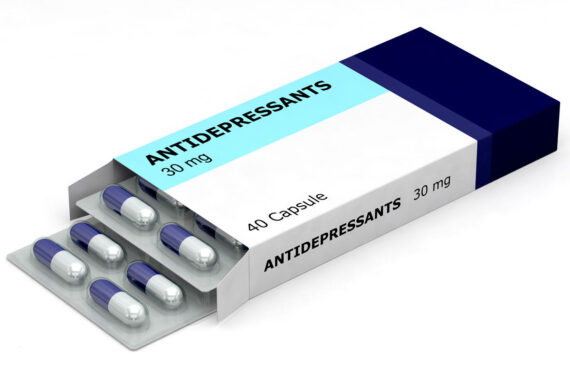A group of politicians, doctors and academics are today launching a call for reduced prescribing of antidepressants in the NHS, including via new GP incentives.
GP signatories to an open letter include BMA vice president Professor Sir Sam Everington, College of Medicine chair Dr Michael Dixon and author and co-founder of Brighton Health and Wellbeing Centre Dr Laura Marshall-Andrews.
The call comes alongside the launch of the ‘Beyond Pills’ All Party Parliamentary Group in Westminster today.
They are proposing five recommendations to address the issue of antidepressant overprescribing, including:
- Stopping the prescribing of antidepressants for new patients with mild conditions
- Adhering to the 2022 NICE guidance on safe prescribing and withdrawal management
- Funding and delivering local withdrawal services integrated with social prescribing, lifestyle medicine and psychosocial interventions
- Including the reduction of antidepressant prescribing as an indicator in QOF
- Funding and delivering a national 24-hour prescribed drug withdrawal helpline
It comes as the number of antidepressant prescriptions has almost doubled in England over the last decade, with 85.6m prescriptions issued in 2022/23.
Dr Dixon said: ‘As GPs we are facing a tsunami of mental health problems – especially depression – and these can often be helped by changes in lifestyle, diet and a range of interventions offered through social prescribing, without reaching for pills that can have all sorts of undesired effects.
‘It is crucial that patients know about and are helped to try these alternatives so that pills become the last resort rather than the first.
‘It is time to de-medicalise mental health and to liberate our patients to find non-drug solutions that work for them.
‘Our most urgent priority now is to equip patients and medics with the means of achieving this.
‘The Beyond Pills All Party Parliamentary Group heralds a sea change in public perception and medical practice from “a pill for every ill” to recognising that there is so much that we can do for ourselves which will not only help us to heal but also stop us getting ill in the first place.’
Other signatories joining in the call include former health minister and Liberal Democrat MP Norman Lamb, current MP Danny Kruger, who will chair the APPG, alongside a number of academics in the fields of psychiatry and pharmacology.
They want the NHS to move ‘beyond an over-reliance on pills’ through ‘an integrated approach’, combining social prescribing, lifestyle medicine and psychosocial interventions with safe deprescribing and a reduction in ‘unnecessary and inappropriate’ prescriptions.
Former NHS chief executive Lord Nigel Crisp, who will co-chair the APPG with Mr Kruger, said: ‘The high rate of prescribing of antidepressants over recent years is a clear example of over-medicalisation, where patients are often prescribed unnecessary and potentially harmful drugs instead of tackling the root causes of their suffering, such as loneliness, poverty or poor housing.
‘The Beyond Pills APPG is being launched to raise awareness of this public health issue. It will focus on promoting proven alternatives to pills such as social prescribing and psychological therapies, as well as local services to help people withdraw safely from these medicines.
‘It will work alongside others to change the way we all think about health, and address these wider social determinants of poor health.’
In May, Cochrane reviewers concluded that there is insufficient evidence to justify the use of most antidepressants that are currently prescribed for chronic pain.
Following a BBC programme in June, patients were warned not to suddenly stop taking antidepressants after headlines warned that people may be taking them for too long.


















READERS' COMMENTS [5]
Please note, only GPs are permitted to add comments to articles
Surely the order of action priorities is upside-down here?
Instead try :
1) tackle the social determinants of health that predispose to depression;
2) provide effective alternative managements for depression;
3) restrict new prescriptions of addictive antidepressants;
4) educate Mental Health Teams to manage medical and social conditions with less recourse to drug prescribing
5) apart from dependent/addictive issues, I think you will find happy people will become naturally averse to use of medications that we, GPs, do tell them have side effects anyway – but maybe reserve certain drugs with other uses, for ongoing use, like Amitriptyline for PHN, etc
Using QOF for this????? Ridiculous and dangerous.
-So a patient in April is prescribed pills, but another in March the next year is denied in case QOF target missed?
-Leafy suburb practices will pick up the QOF cash with ease, whilst those of us stuck in higher dependency areas (with far higher rates of mental health issues) are bound to miss out.
– those with plentiful access to counselling etc will be quids in, whilst the rest of us are stuck with patients demanding unavailable help…..other than pills.
By all means look to reduce prescribing by other means, but not QOF. It is blatantly unfair and divisive.
Laughter is the best medicine
Aren’t we all doing it as mentioned above ? I thought so. Tsunami of mental health really?
I work in an area with lots of well of people and some pockets of deprivation.
– half of my patients can access gold standard talking therapy – with face to face counselling weekly for 6-12 weeks (privately). Or they could access medications, but with that choice many choose counselling.
– the other half have a choice between ‘talking therapies’ delivered in what can only be described as the cheapest possible way with no regard for efficacy, involving mostly online workbook type exercises. Or taking medications. And many will choose the medication.
If you want to reduce antidepressants the only solution is to provide gold standard face to face counselling, without a delay. Do that and numbers will tumble. Anything else is bordering on unethical.